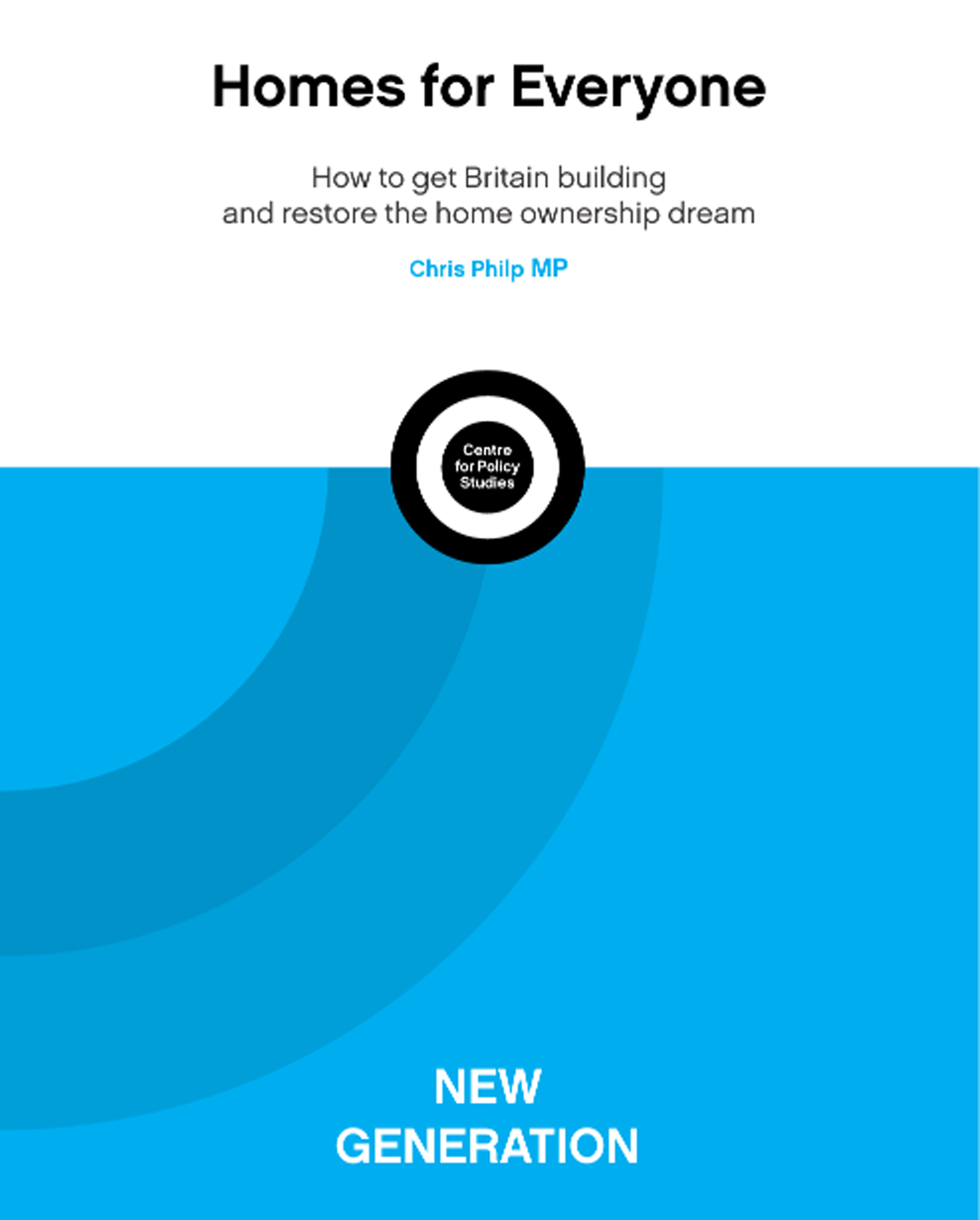
A new report by Croydon South MP Chris Philp, published by the Centre for Policy Studies, proposes further reform of the planning system to increase homebuilding and promote home ownership.
With the average first time buyer having to save for 10 years to put together a deposit and home ownership rates falling among the young, the report — Homes for Everyone — sets out detailed proposals for how to push housebuilding up towards the Government’s target of 300,000 a year, and ensure these new homes end up with first-time buyers.
The report, published as part of the Centre for Policy Studies’ New Generation initiative, also features new research setting out the historic under-supply of homes in the UK across regions, and makes the economic and social case for home ownership.
The headline findings of the report include:
- The gap between the number of new homes we need and the number being built each year now stands at 76,000 a year. Of these, some 40,000 per year are in London and another 10,000 each in the East and South-east.
- The cumulative housing shortage since 2000 has reached 343,000 in London and 96,000 in the South-east.
- Over a 25-year period, a homeowner will end up between £100,000 and £300,000 richer than a renter. Owning is more beneficial than renting even if you assume zero real house price growth and sky-high investment returns on the money that would have been used for a deposit.
Chris Philp MP said: “We need to place home ownership at the front of the policy agenda and make sure that first time buyers get all the support possible to get onto the housing ladder.”
While welcoming the Government’s work and progress, including the Chancellor’s recent stamp duty cuts for first time buyers, the report makes a series of proposals for speeding up the planning system and tilting its outcomes towards first time buyers.
These include the merger of the Community Infrastructure Levy and Section 106 requirement for developments under 100 homes; the removal of the affordable housing requirement for developments under 20 units; “Pink Zones” in which development will be automatically approved within certain parameters; fast-track planning approval and dispute resolution; speeding up the disposal of public land; strengthening the Government’s ability to act on housing issues; and promoting “staircasing” agreements by which renters can gradually buy their homes over a period of years, at the initial price.








